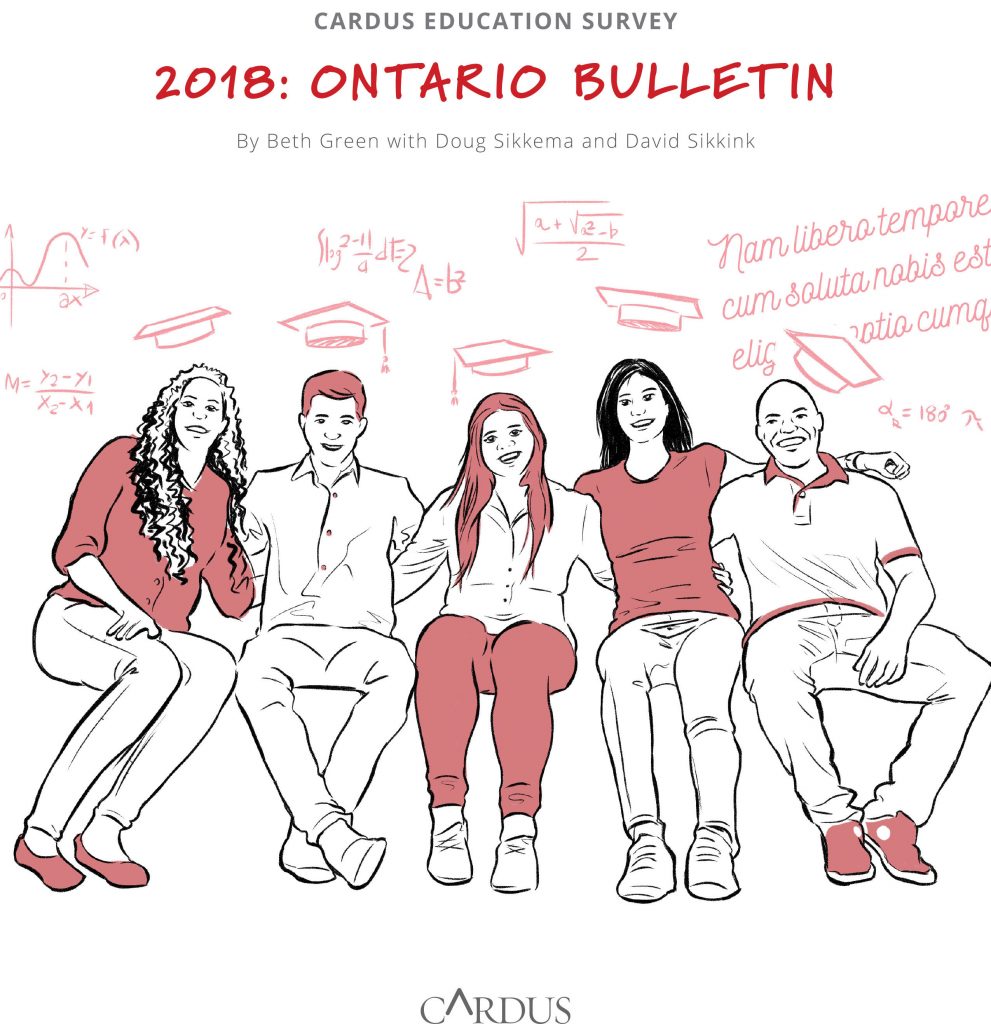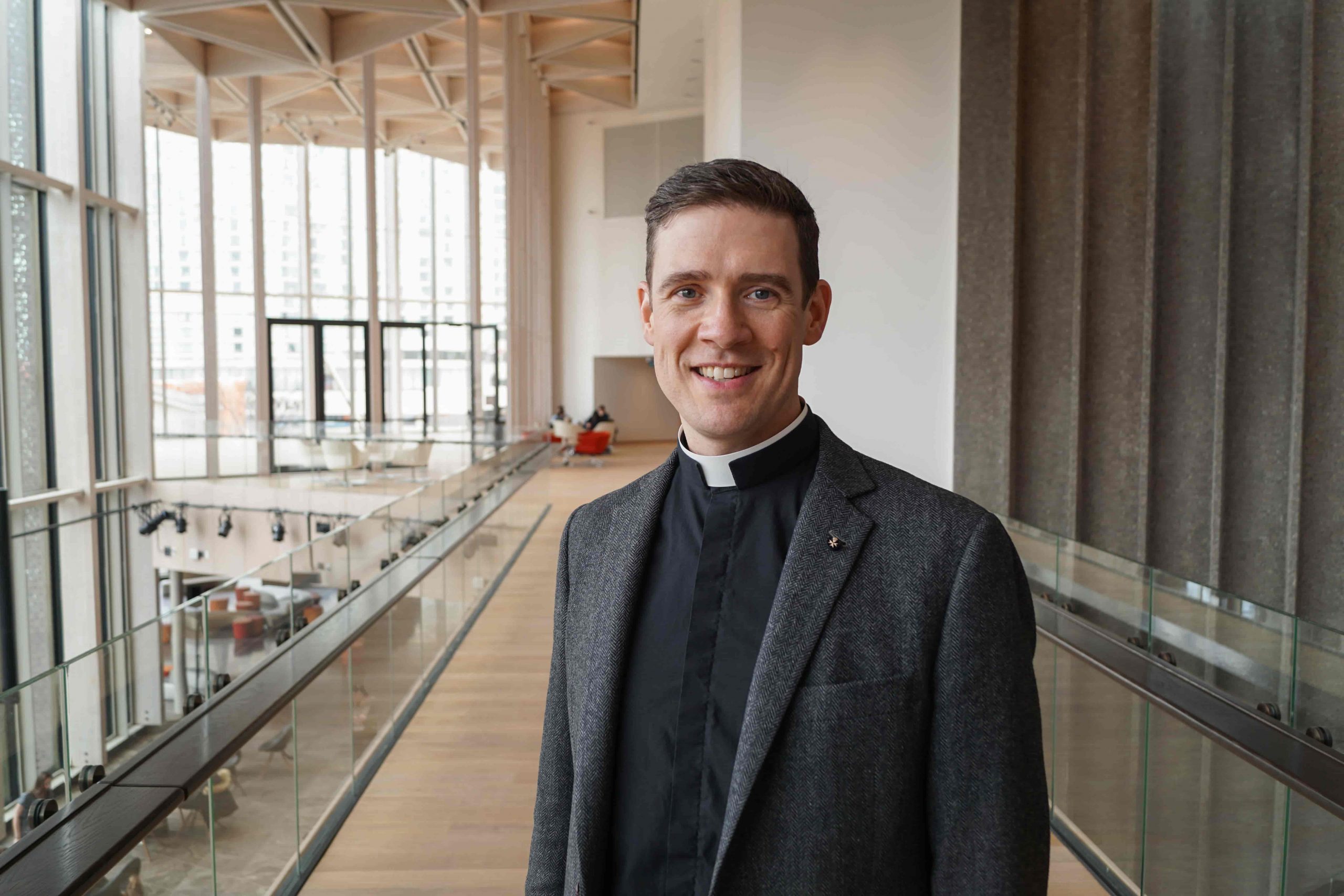FOR IMMEDIATE RELEASE December 6, 2018 Brian Dijkema, Work & Economics Program Director at Cardus released the following statement today regarding the Labour Relations Act changes contained in the Restoring Ontario’s Competitiveness Act, introduced in the Ontario legislature today: “Taxpayers stand to save, on average, about $370 million when cities, school boards, and other agencies finally open up their public projects to fair, open contract bidding. Years of research have shown what Cardus has been saying for a long time: Fair and open bidding for public construction projects is good for workers, good for the industry, good for taxpayers, and good for the province. Existing labour law penalized workers for exercising their basic freedom of association. The policy changes in this new bill encourage labour diversity while maintaining the freedom of association of all workers to organize their workplaces as they see fit, without undue government interference. This is a recognition that governments and public agencies are fundamentally different from private businesses, and the law should treat them accordingly.”MEDIA INQUIRIES Daniel Proussalidis Cardus - Director of Communications 613-241-4500 x508 dproussalidis@cardus.ca

Statement on Restoring Ontario’s Competitiveness Act
December 6, 2018

Poll: 59% Say Charter Right of Religious Freedom Improves Canada
FOR IMMEDIATE RELEASE November 23, 2018 Fifty-nine percent of Canadians say they believe religious freedom – a fundamental freedom the Charter of Rights and Freedoms protects – makes Canada a better country. That finding comes from a new Angus Reid Institute survey of 2,200 adults done in partnership with Cardus. The same survey finds that appreciation of religious freedom is higher among young adults, with 64 percent of those aged 18 to 34 saying it makes Canada better. Appreciation of religious freedom jumps to 72 percent among those who are university-educated. “While I wish the overall proportion of Canadians valuing religious freedom were higher, it bodes well for the future that young adults and those with university education are the most supportive of this fundamental freedom,” says Ray Pennings, Executive Vice President of Cardus. “Taken with the high proportion of immigrants who bring their faith to Canada, our country could be heading toward a more faith-friendly future.” The survey found some warning signs about hostility to faith:32 percent of Canadians say society makes room for their personal values and faith, while 23 percent feel society shuts them out Half of Canadians are uncomfortable with religious garments and symbols in the workplace 53 percent of Canadians say reducing the presence of religion in public life is a sign of progressOther findings suggest religious faith is an important part of Canadian life today:75 percent of Canadians like having people of diverse religious backgrounds in their community 73 percent of Canadians say the federal government respects their religious community, though feelings vary widely depending on religious background 70 percent of Canadians consider it important for government decision makers to know the basics about the world’s major religions 68 percent of Canadians want public schools to teach the basics of the world’s major religions“Religious freedom is a key part of maintaining genuine and deep pluralism where we respect and engage each other’s differences,” says Pennings. “It protects the ability of the religious and non-religious to act according to their deepest beliefs—informing our freedoms of speech, association, and assembly.” These findings are part of a larger Public Faith Index study. The full study is available online. To book an interview with Ray Pennings, please, contact Daniel Proussalidis.MEDIA INQUIRIES Daniel Proussalidis Cardus - Director of Communications 613-241-4500 x508 dproussalidis@cardus.ca
November 23, 2018

Statement on the Passing of John Rozema
FOR IMMEDIATE RELEASE November 21, 2018 John Rozema, a respected businessperson and philanthropist from Sarnia, Ontario, has passed away. While we mourn his passing, we celebrate his legacy. John co-founded a contracting company in 1963, Steeves & Rozema, which grew into one of the largest employers in Sarnia. Success in business did not diminish in any way John’s humble commitment to making local and community institutions thrive. He used his gifts in service to others to become, in every sense, a community-builder. John’s generosity has made a remarkable and positive difference, both today and for future generations of Canadians through the contributions he and his wife Lainey made to the recognition of excellence in education. The John Rozema Teaching Excellence Award serves as an ongoing investment in the life of Ontario’s Christian school community and continues to mark these schools’ contributions to the common good. Cardus offers its condolences to the entire Rozema family. We are deeply grateful for the contributions John and Lainey Rozema made to a stronger future for Canada through support for Christian education. More information on the remarkable life and legacy of John Rozema is available online. MEDIA INQUIRIES Daniel Proussalidis Cardus - Director of Communications 613-241-4500 x508 dproussalidis@cardus.ca
November 21, 2018

Canadian Young Adults are “Living La Vida Lonely”
FOR IMMEDIATE RELEASE November 13, 2018 Despite an explosion in the number of dating apps available, including the newly launched Facebook Dating service, Canadian young adults appear to be finding it more difficult than ever to find life-long love. Living La Vida Lonely, a new Cardus analysis of census data, finds the proportion of Canadians aged 20 to 34 living without a life partner has reached a 20-year high of almost six in 10. “The need for more education long after high school, student debt, unstable job markets, and sky-high housing costs could all be factors young adults putting off long-term committed relationships,” says Peter Jon Mitchell, author of Living La Vida Lonely and a senior researcher at think tank Cardus. Even among those aged 25 to 34, it is more common to be neither married nor in a common-law relationship than it is to be married. That reality may not match what young adults actually want. “According to an Angus Reid poll earlier this year, 54 percent of young adult Canadians say they would like to get married,” says Mitchell. “Still, marriage continues its long decline, outpacing even the increase in cohabitation. And that’s carried on into middle-age where marriage rates are at new lows.” The overall story for Canadians aged 20 to 34 is that as marriage declines and common-law relationships rise, young adults are still increasingly living without any partner at all. Click here to access Living La Vida Lonely online. To book an interview with Peter Jon Mitchell, please, contact Daniel Proussalidis. MEDIA INQUIRIES Daniel Proussalidis Cardus - Director of Communications 613-241-4500 x508 dproussalidis@cardus.ca
November 13, 2018

Alberta’s Students Need a Stronger Independent School Sector
FOR IMMEDIATE RELEASE November 7, 2018 Think tank Cardus is calling for increased independent school enrollment to help spur public school improvement and accountability. The proposal is part of Better is Possible, an analysis of education research by Cardus President and CEO Michael Van Pelt. If provincial governments increased independent schools’ share of all enrollment by five to 10 percent the sector would be large enough to provide parents with a stronger alternative without system-wide disruption. That’s especially important in Alberta, where independent schools serve less than five percent of K-12 students. “A strong independent school sector in Alberta will do more to help improve the entire education system than any regulatory or curriculum change,” says Van Pelt. “If the independent sector were large enough, it would force public schools to up their game.” Van Pelt says Alberta public schools urgently need to do better. “Dismal math performance at Alberta public schools has persisted for years while government and unions have had a lock on 95 percent of schooling,” he says. “A modest shift in responsibility would help the entire system. We’ve seen internationally that education systems with stronger independent sectors have higher student achievement levels, higher parent satisfaction, and better money management.” Better is Possible outlines five possible actions for the Alberta provincial government to take:Increase financial resources to expand independent school options for special needs students Increase per-student funding for independent schools Approve independent school funding on a five-year basis to give schools financial stability Reduce the regulatory burden on independent school start-ups or expansions Offer a transportation subsidy to parents wanting to send their kids to independent schoolsTo book an interview with Michael Van Pelt, please, contact Daniel Proussalidis. MEDIA INQUIRIES Daniel Proussalidis Cardus - Director of Communications 613-241-4500 x508 dproussalidis@cardus.ca
November 7, 2018

Ontario Loses by Marginalizing Independent Schools
FOR IMMEDIATE RELEASE October 25, 2018 New research confirms that Ontario’s independent schools are producing socially engaged, generous graduates with zero provincial support. The new Cardus Education Survey 2018: Ontario Bulletin finds that the province’s independent religious schools produce the Ontario’s most civically engaged graduates. They’re the most likely grads to participate in almost every Statistics Canada category of volunteering, they’re more trusting of strangers, co-workers, and neighbours, and they’re more likely to pay attention to the news. “Many Canadians rightly worry about the loss of civility in our culture, the decline in how welcoming our country is, and a drop in charitable giving,” says Dr. Beth Green, who directs education research at think tank Cardus. “Ontario’s independent schools – especially the religious ones – help counteract these negative trends by producing graduates who are interested and involved in the world around them.” Despite these results, Ontario remains the only province from Quebec to British Columbia that offers no public funding for independent schools. “Ontario loses by marginalizing independent schools and funding government-run schools exclusively,” says Dr. Green. “It should bring independent schools in from the cold by making them more affordable for low and middle-income families whose needs aren’t met by government-run schools.” The 2018 Cardus Education Survey: Ontario Bulletin contains findings from respondents aged 24 to 39, all of whom graduated from a public, separate Catholic, independent Catholic, evangelical Protestant independent, or non-religious independent school in Ontario. Researchers control for socio-demographic factors in order to isolate the school effect on students. Other notable findings include:Non-religious independent and independent Catholic school graduates are twice as likely as public school graduates are to obtain a Master’s or an advanced specialist degree. Catholic and Protestant independent school graduates are just as likely as their public school counterparts are to have a friend who is gay or lesbian. Public school graduates are least likely to agree with the statement: most people can be trusted.Meanwhile, Cardus Executive Vice President Ray Pennings notes independent school enrollment is up. “Independent schools now teach more than six percent of all students in Ontario,” says Pennings. “Parents are increasingly seeking affordable options for their kids’ diverse educational needs.” To book an interview with Dr. Beth Green or Ray Pennings, please, contact Daniel Proussalidis. MEDIA INQUIRIES Daniel Proussalidis Cardus - Director of Communications 613-241-4500 x508 dproussalidis@cardus.ca
October 25, 2018

Good Citizens Ready for “Real Life” at Half the Cost
FOR IMMEDIATE RELEASE October 17, 2018 British Columbia’s independent schools are far ahead of public schools in meeting a key provincial educational requirement: getting high school students ready for “real life.” The provincial government recently implemented changes to high school curriculum in order to help graduates better prepare for real life decision-making as young adults. But the latest Cardus Education Survey (CES) indicates BC independent schools – both religious and non-religious – were achieving the same ends years ago. “Looking back on their high school years, graduates of BC independent schools were more likely than their public school counterparts to say their school prepared them for relationships, university or college, work, and religious life,” says Dr. Beth Green, who directs education research at think tank Cardus. “That’s remarkable when you consider that most of these schools are not elite institutions and all of them get, at best, just half the per-student government funding of public schools – with zero funding for capital costs.” The 2018 CES for BC surveyed adults aged 24 to 39 who graduated from public, Catholic independent, evangelical Protestant independent, or non-religious independent schools in BC. It also found:Non-religious independent and Catholic independent school graduates reported average annual incomes up to $16,000 higher than public or evangelical Protestant school grads. Evangelical Protestant school graduates are just as likely as public school grads to have a friend who is gay or lesbian, is a recent immigrant, is of a different race, is a co-worker, has a university degree, makes more than $100,000 annually, or makes less than $25,000 annually. Non-religious independent schools produce graduates who are 2.2 times more likely than public school grads to volunteer in the community. (Evangelical Protestant school grads are also 2.2 times more likely to volunteer, thanks to family and church influence.) Non-religious independent school and independent Catholic school graduates are more likely than public school grads to attend university or a graduate program.“Our social science research indicates that B.C.’s independent school graduates cultivate diverse social ties, are active and engaged members of their communities, are committed to the well-being of their neighbours, and are ready to give of both time and resources,” said Dr. Green. Today, more than one in 10 BC students attends an independent school – up from just four percent in 1977 – and enrollment continues to grow. “The independent school sector is too large to ignore and comprises a significant, productive, and positive part of the province’s education system,” said Dr. Green. “That’s important for educators, unions, policy-makers, and all British Columbians to recognise.” The CES is the only study in Canada that uses repeated measures to report on the outcomes of religious, non-government schooling and compare it to public school outcomes. The 2018 report is the first to include provincial-level results, as opposed to national results. The 2018 CES British Columbia Bulletin, including details on methodology, is available online. To book an interview with Dr. Beth Green, please, contact Daniel Proussalidis.MEDIA INQUIRIES Daniel Proussalidis Cardus - Director of Communications 613-241-4500 x508 dproussalidis@cardus.ca
October 17, 2018

A New Chapter for Comment Magazine
FOR IMMEDIATE RELEASE October 16, 2018 HAMILTON – James K.A. Smith, editor-in-chief of the flagship Cardus journal Comment, has decided not to seek re-appointment after December 31, 2018. For six years, Smith’s intellectual power and presence shaped the direction of Comment and its parent Cardus. “I am incredibly grateful for the years I’ve been able to work on Comment,” said Smith. “It has been a gift to work with such a marvelous team committed to ‘public theology for the common good.’ But I’ve discerned that the next season of my vocation is calling me to attend to different ‘cracks in the secular’ in the realm of beauty, imagination, and the arts. " Ray Pennings, publisher of Comment and executive vice president of Cardus, noted that Smith's editorship of Comment since January 2013 has influenced broader Christian intellectual discourse. "Under Jamie’s leadership, Comment has become the dominant source of ‘Worldview 2.0’ education for tens of thousands of readers worldwide,” said Pennings. “He has helped root the work of Cardus in a solid Christian tradition and made it relevant to the big questions North America is facing.” Smith will continue to serve as a contributing editor for Comment in 2019. “I want to see Comment continue to thrive,” said Smith. “It will remain nourished by good people and sharp thinkers and it will serve the Cardus mission of promoting a flourishing society. I look forward to continuing my contributions to that work in a new way.” Pennings expressed confidence in Comment’s prospects for the future. “Comment has always been blessed with strong editorial leadership that was discerning of its times,” he said. “Cardus will assess the landscape carefully and take time to identify what we need in Jamie's successor to take Comment to the next level." - 30 - MEDIA INQUIRIES Daniel Proussalidis Cardus - Director of Communications 613-241-4500 x508 dproussalidis@cardus.ca
October 16, 2018

Business Can Do Better on Workplace Diversity
FOR IMMEDIATE RELEASE October 3, 2018 OTTAWA – Canada’s businesses must do a better job of honouring the diversity of their employees, argues think tank Cardus in a new guide for workplaces. The four-step guide, Navigating Religious Diversity in the Workplace, offers concrete recommendations to make Canadian businesses and workplaces truly welcoming for people of faith. Cardus Executive Vice President Ray Pennings says the guide is more necessary than ever. “We know that having a diverse workplace is good for business,” says Pennings. “And religion is part of that diversity. Eight in 10 Canadians claim some connection to spirituality, while at least half of Canadians have a religious identity at some level.” Navigating Religious Diversity in the Workplace comes as part of a special Cardus presentation to a meeting of the Conference Board of Canada’s Council on Inclusive Work Environments in Toronto this week. The guide, which is freely available for download, recommends that organizations undertake four steps: Awareness: Build religious literacy and awareness within your organization by learning about various traditions, holy books, or major beliefs. Affirmation: Institutionally recognize the importance of religious diversity and religious freedom in the workplace—just as other aspects of individual identities are being publicly affirmed, so too should religious identities. Engagement: Look outside your organization to learn and work with religious communities by collaborating with religious charities or hosting training sessions. Accommodation: Complex issues require complex solutions, such as allowing scheduling changes because of religious holidays, changing employees’ duties if tasks conflict with religious convictions, or allowing the use of work facilities for religious observance. “Religion is not merely a private thing that only belongs in our homes or houses of worship; it’s a deep part of the identity of many Canadians and is present wherever they are, be it a public or private space,” says Pennings. “Because Canadian society is as religious as it is, we need to be more attentive to matters of faith, especially in our workplaces and other public spaces. Simply put, business can do better.” Download a copy of Navigating Religious Diversity in the Workplace from the Cardus website. To book an interview with Ray Pennings, please, contact Daniel Proussalidis.MEDIA INQUIRIES Daniel Proussalidis Cardus - Director of Communications 613-241-4500 x508 dproussalidis@cardus.ca
October 3, 2018



